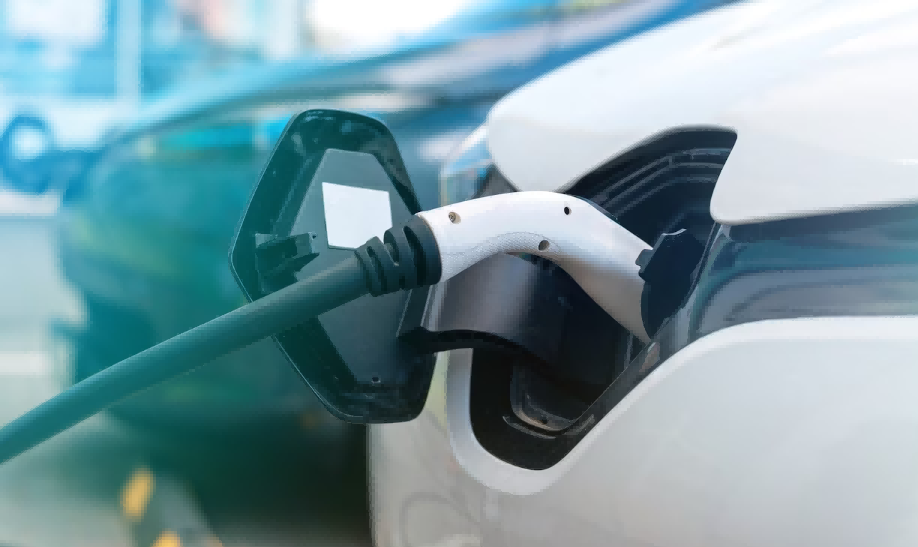 Trade Trends News
Trade Trends News
 10-07-2023
10-07-2023
· Siam Motors in talks with Chinese group over partnership
· Chinese electric car makers have invested $1.44 billion since 2020
· Electric vehicles are rapidly growing as a share of vehicle sales in Thailand

Siam Motors, which partnered with Nissan (7201.T) in 1962, has built a profitable decades-long relationship with the Japanese company, taking it from a car dealership to a car pioneer, as the plant produces four cars a day.
But with this success, the Thai family-owned company has grown to $7 billion in annual revenue and is now looking elsewhere for opportunities.
In an interview, Sebastien Dupuy, vice president of Siam Motors, said the company is in talks with several Chinese automakers about potential partnerships, particularly in high-end electric vehicles.
"Electric vehicles will be a good growth point," he said. "This market is growing and we want to capitalize on that growth opportunity."
Siam Motors' position reflects the rapid transformation taking place in Thailand, where Chinese investments worth $1.44 billion since 2020, including BYD (002594.SZ) and Great Wall Motors (601633.SS), have opened up a new front dominating the market.
After a sales crisis erupted in China, Japanese automakers now face a scramble for another key Asian market as they make slow progress in electric vehicles, according to registration data, industry officials and analysts.
The Chinese wave has already begun to reshape Thailand's auto industry, with Chinese electric car makers bringing in suppliers and local Thai companies - including those with longstanding ties to Japanese firms such as Siam Motors - seeking new partnerships.
Thailand is the largest producer and exporter of cars in Southeast Asia and the second-largest market for car sales after Indonesia. It is dominated by Japanese automakers, who for decades saw it almost as an extension of their home market.
But last year, BYD's investment in a new plant set to come online in 2024 propelled China past Japan to become Thailand's largest foreign investor, amid a concerted effort by Thai officials to attract Chinese electric car makers.
As Chinese automakers increase exports and establish overseas production centers, Thailand's transition offers a test for other economies, partly in response to a competitive domestic electric vehicle market.
In Europe, for example, policies to support local electric vehicle production are still taking shape, and Chinese automakers are pushing hard in a market where electric vehicles now account for nearly one-fifth of total sales.
China vs. Japan
Bangkok resident Pasit Chantarojwong has been driving a Toyota Corolla for fifteen years before switching to Great Wall Motors' Aura Goodcat this year.
"I will never drive an internal combustion engine car again," says the 55-year-old teacher, who also drives part-time for a ride-hailing service.
Of the nearly 850,000 new cars registered in Thailand last year, only about 1 percent were electric, according to government data. But between January and April this year, that percentage rose to more than 6 percent.
BYD is now the market leader, followed by China's SAIC Motor Corp (600104.SS), Hopewell Motors and U.S. automaker Tesla (TSLA.O), registration data show, with 18,481 electric vehicles sold between January and April.
Of these, more than 7,300 are BYD vehicles. Only 11 newly registered electric vehicles this year came from Toyota (7203.T), the dominant brand in Thailand, which along with its partners Isuzu (7202.T) and Honda (7267.T) accounted for nearly 70 percent of total car and truck sales in the country last year.
Hajime Yamamoto, head of Nomura Research Institute's Thailand consulting unit, said Chinese brands could take at least 15 percentage points of market share from Japan over the next decade by offering affordable electric vehicles.
"The Japanese can only target some high-end markets," Yamamoto said.
Toyota and its group of companies, which has invested nearly $7 billion in Thailand over the past decade and employs about 275,000 people, told Reuters in a statement that it was considering producing electric cars in the country, the first official confirmation of that.
Toyota said the electric bZ4X has been on sale in Thailand since last year and has received 3,356 reservations.
It also hinted at an electric pickup truck coming soon, but Goldman Sachs said in a report last month that "there is an increasing need for them to consider expansion in other product areas."
Government push
By 2030, Thailand aims to convert about 30 percent of its annual production of 2.5 million vehicles to electric vehicles, and has ambitions to become a major regional production center and is actively seeking investment.
What Thailand is marketing to Chinese EV manufacturers is its existing supply base (built primarily for Japanese automakers) and readiness to offer incentives.
These include reduced import tariffs under the condition of subsequent local assembly and some tax breaks for electric vehicle manufacturing.
"We realize that if we want to be an electric vehicle hub in the region, we can't just build the auto assembly industry," said Narit Therdsteerasukdi, secretary general of the Board of Investment of Thailand, who has visited China several times in recent months.
"We need to strengthen the whole ecosystem of electric vehicles."
As of May 31, the BOI had approved 14 projects by 13 companies with an annual capacity of 276,640 electric vehicles.
Narong Sritalayon, managing director of Great Wall Motor Thailand, said Great Wall Motor chose Thailand as a regional hub for electric vehicles because of the country's strong infrastructure, supplier and talent base and growth potential.
He said, "You want to enter a market that has buying power and can support your future growth plans, especially in new business areas such as electric vehicles."
Category
Leave Message for Demo Request or Questions


 T-info
T-info T-discovery
T-discovery

 My
Tendata
My
Tendata Market Analysis
Market Analysis Customer
Development
Customer
Development Competitor
Monitoring
Competitor
Monitoring Customer Relationship
Customer Relationship





































































































































